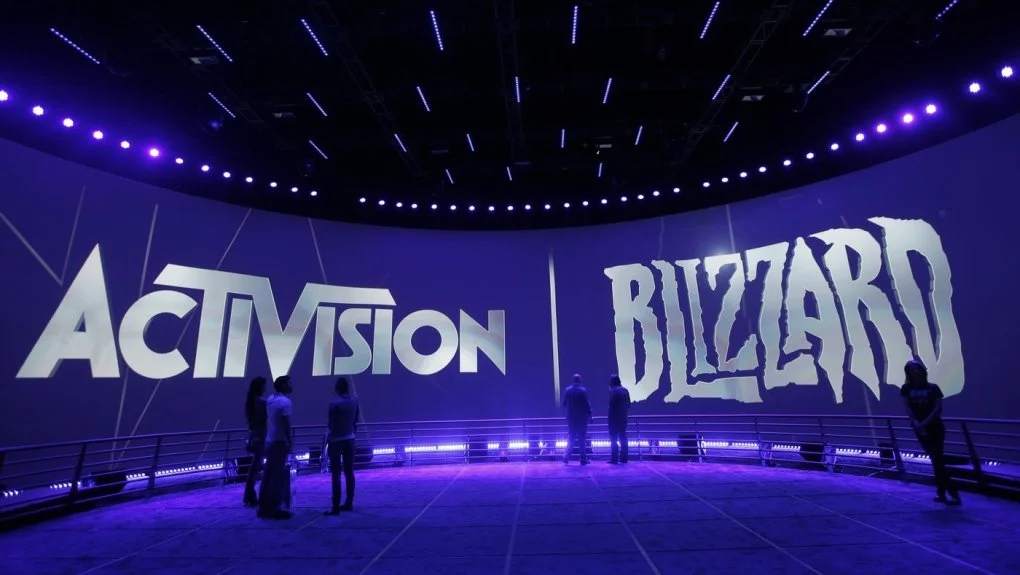Microsoft - Activision Decision
This is a big deal!!
In a groundbreaking and momentous decision, the United States Federal Trade Commission (FTC) has recently granted its approval for Microsoft to acquire Activision, a behemoth in the realm of video games and one of the industry's foremost giants. This monumental move signifies a significant turning point in both the technology sector and the gaming world, setting off a flurry of extensive discussions and impassioned debates. In this article, we shall delve deeply into the intricate intricacies of this acquisition, exploring its plausible ramifications, and comprehending its profound implications for both Microsoft and the ever-expanding gaming community.
In recent times, Microsoft has made an audacious proclamation, expressing its intention to procure Activision in a deal with an eye-watering valuation of $69 billion. This colossal acquisition stands as one of the most substantial and momentous events in the annals of the gaming industry. Activision, esteemed and exalted for its iconic and universally revered franchises, which include but are not limited to, Call of Duty, World of Warcraft, and Candy Crush, boasts an expansive global user base, further augmented by an admirable and illustrious portfolio of games.
With this unprecedented acquisition, Microsoft leaps forward with Herculean strides, as it endeavors to fortify its dominion over the gaming industry. The procurement of Activision affords Microsoft an unparalleled edge, broadening its gaming repertoire and unfathomably emboldening its Xbox Game Studios division. This calculated maneuver propels Microsoft into the echelons of a commanding and formidable presence within the fiercely competitive market, where it rivals industry stalwarts such as Sony and Nintendo.
Furthermore, this acquisition falls perfectly in line with Microsoft's overarching strategy, aimed at constructing a robust and all-encompassing ecosystem that spans across various devices and platforms. By ingeniously integrating Activision's illustrious franchises and innovative technological advancements into its existing offerings, Microsoft capitalizes on the limitless potential for cross-platform capabilities, ultimately enhancing the gaming experience for its vast user base.
The acquisition has sparked varied responses within the gaming community, eliciting a spectrum of viewpoints. Advocates of the deal postulate that Microsoft's abundance of resources and unwavering dedication to fostering novelty could translate into an array of thrilling prospects for gamers. They eagerly anticipate enhanced gaming experiences, a marked improvement in visuals, and the creation of groundbreaking titles solely accessible to those within Microsoft's exclusive ecosystem.
However, apprehensions have also surfaced regarding potential ramifications for competition and the freedom of consumers to choose. Detractors express concern that Microsoft's escalated power within the gaming industry might result in a consolidation of control, which would have a stifling effect on competition and constrain the array of options available to gamers. They argue that a dearth of competition could give rise to diminished innovation, inflated prices, and a lack of variety for consumers.
Given the magnitude of this merger, it underwent a rigorous examination by regulatory entities, including the Federal Trade Commission (FTC). As the principal guardians of consumer protection and fair competition, the FTC conducted a meticulous investigation into the potential antitrust implications of the agreement.
After an assiduous evaluation, the FTC granted its approval for the acquisition, subject to certain conditions designed to preserve healthy competition. These conditions may encompass mandates for Microsoft to sustain equitable access to its gaming platforms for third-party developers and ensure fair play for all participants within the industry.
Microsoft's acquisition of Activision signifies a monumental shift in the landscape of the gaming world. As Microsoft fortifies its position as a formidable contender in the realm of gaming, the consequences for the gaming community remain uncertain. Notwithstanding the potential advantages such as enhanced gaming experiences and seamless cross-platform integration, concerns regarding competition and the freedom of choice continue to persist.
In the forthcoming months and years, as the acquisition unfolds, it is of utmost importance for regulators to diligently monitor the actions undertaken by Microsoft, ensuring that the gaming industry remains a fair and competitive marketplace. The ultimate impact this deal will have on the gaming community hinges upon Microsoft's ability to effectively wield its newfound power while attentively addressing the concerns voiced by gamers and key industry stakeholders.

